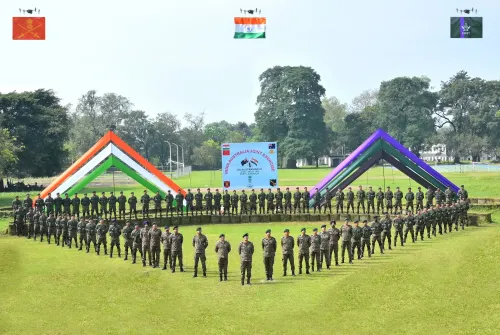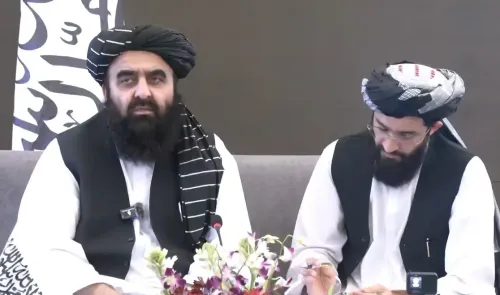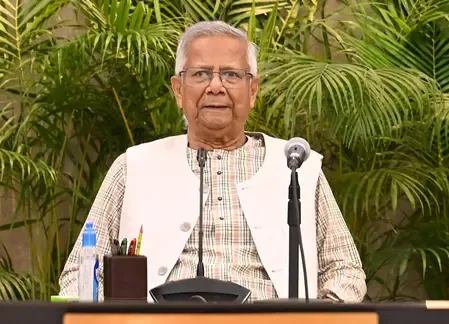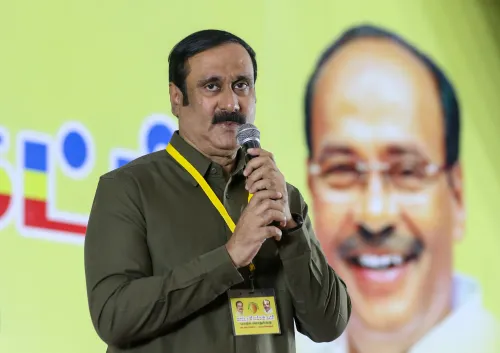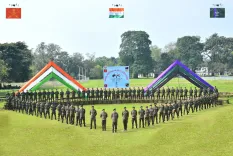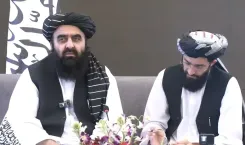Did Delhi Speaker Vijender Gupta Gift a Book on PM Modi to Barbados Premier?
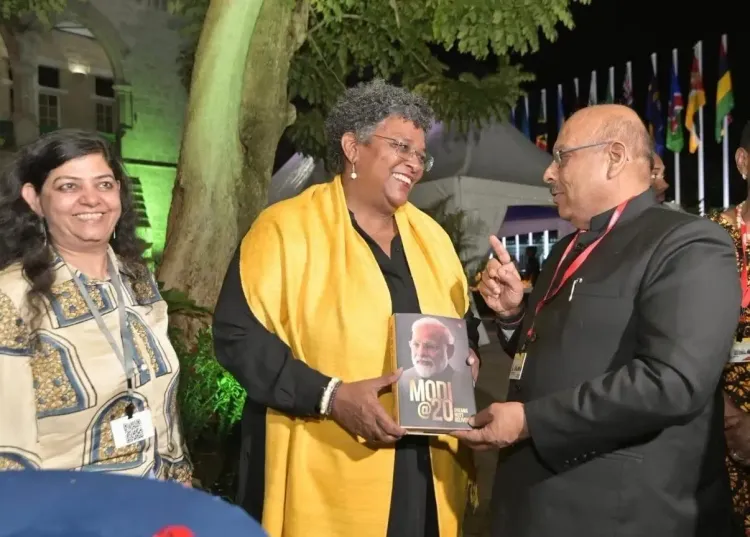
Synopsis
Key Takeaways
- Gift of Diplomacy: Gupta presented a significant book to strengthen ties.
- Shared Values: Emphasis on democratic principles between India and Barbados.
- Transformative Leadership: The book celebrates PM Modi's governance.
- Crisis Support: Mottley recalls India's assistance during Covid-19.
- Democracy's Evolution: Gupta discusses the importance of ethical governance.
New Delhi, Oct 11 (NationPress) On Saturday, Delhi Assembly Speaker Vijender Gupta presented a book about Prime Minister Narendra Modi to Barbados Premier Mia Amor Mottley during the 68th Commonwealth Parliamentary Conference (CPC) held in Barbados.
Gupta bestowed upon PM Mottley a copy of the book “Modi@20: Dreams Meet Delivery”, honoring the transformative leadership and visionary governance of Prime Minister Modi.
This encounter emphasized shared democratic principles and a collective interest in enhancing collaboration between India and Barbados.
Gupta remarked on how India’s significant advancements under PM Modi’s guidance have emerged as a benchmark for inclusive development, global partnerships, and resilient governance.
Premier Mottley expressed her heartfelt gratitude for the enduring friendship between India and Barbados.
She cherished the timely and substantial support provided by PM Modi during the Covid-19 pandemic, stressing that her nation “will always remember India’s solidarity in their time of need.”
This meeting highlighted the spirit of friendship, cooperation, and shared democratic values that reinforce the bond between India and Barbados within the Commonwealth.
Previously, during a workshop at the 68th CPC in Bridgetown, Barbados, Gupta shared insights on the theme ‘Strengthening Our Institutions to Support Democracy,’ emphasizing the need to fortify democratic institutions, encourage inclusive governance, and deepen the ethical foundations of constitutionalism across the Commonwealth.
The conference is set to conclude on October 12.
Gupta asserted that democracy, in its authentic essence, must transcend electoral representation to foster a culture of equality, accountability, and civic involvement.
He stressed that institutional resilience and ethical governance are critical for maintaining public trust in democracy.
“The vitality of a democracy,” he noted, “is not measured by the frequency of elections but by the integrity of its institutions, the inclusivity of its representation, and the conscientiousness of those in power.”
Reflecting on India’s democratic path, Gupta acknowledged that the nation’s efforts toward inclusive representation commenced with the 73rd and 74th Constitutional Amendments of 1993, which established Panchayati Raj and municipal governance while reserving one-third of all seats for women in local bodies.

